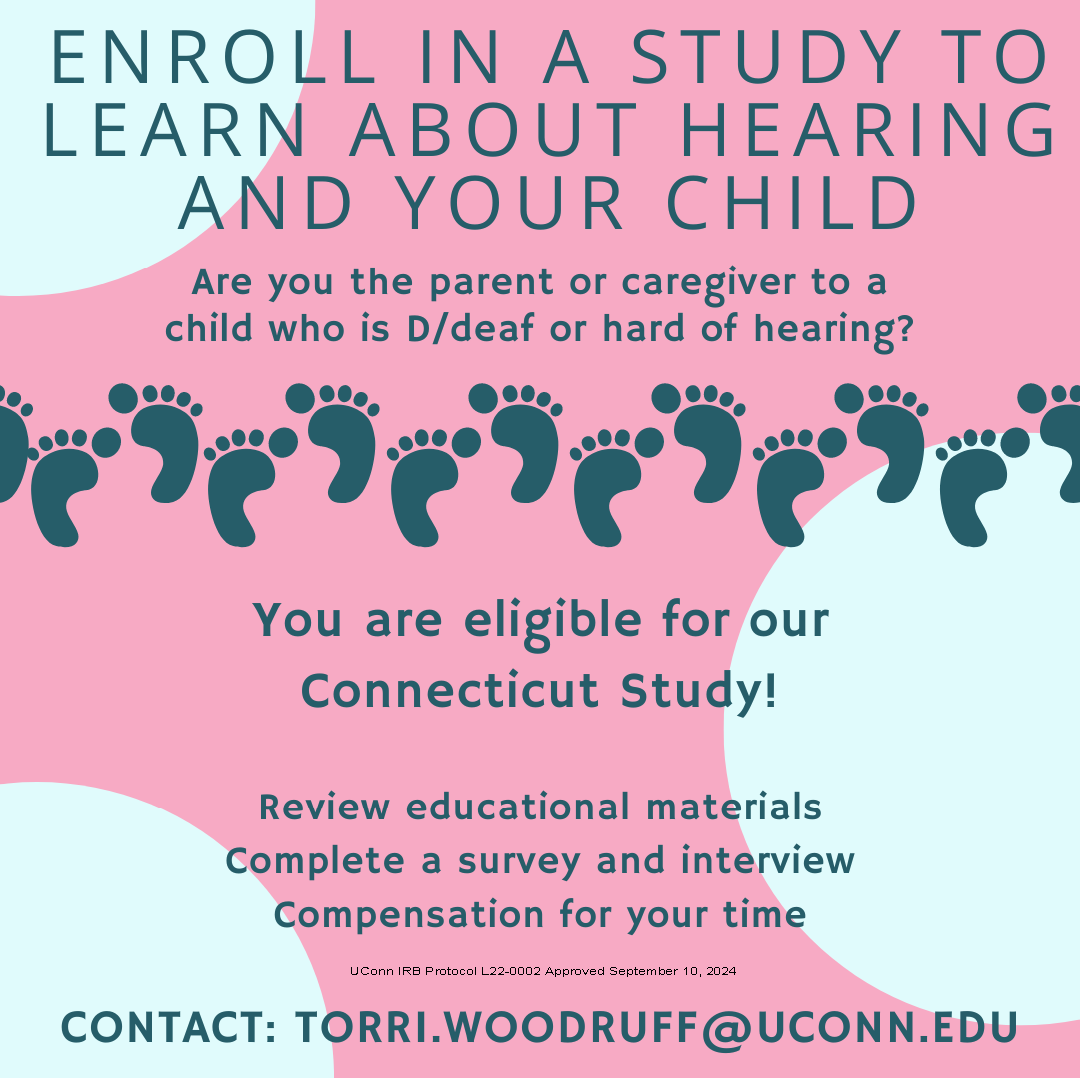HELLO Lab at the University of Connecticut
Language First is excited to partner with the Hearing Experience and Language Learning Outcomes (HELLO) Lab in the Department of Speech, Language, and Hearing Sciences at the University of Connecticut. Check out the free resources they’ve created for families of Deaf and hard of hearing (DHH) children by clicking any of the links below.
RESOURCES AND HANDOUTS
Getting College-Ready: Classroom Technology Resources
All About ASL-English Interpreters
Listening Devices and Water Safety
Facts and FAQs about Cochlear Implants
Strategies for Communicating - Visual Language
Strategies for Communicating - Spoken Language
Connecticut-Based Resources for Parents/Caregivers
So You’re in Connecticut? - Spring Must-Sees
So You’re in Connecticut? - Summer Must-Sees
So You’re in Connecticut? - Fall Must-Sees
RESEARCH PROJECTS
For families that want to learn more about research but are not interested in the ongoing studies, you can sign up for HELLO Lab’s participant pool for future invitations to research.
PIE
PIE stands for Parent Infant Eyetracking. In this study we are looking at parent child interactions and how elements of that interaction can support children who have cochlear implants in learning words. We are looking for children who are under 3 years of age and would be interested in playing together with eye trackers on! This is in person but we can bring studies to families OR help the families come to Storrs! We are currently recruiting toddlers ages 1-3.
Swaddling
Our smallest study looks at barriers to intervention access and decision making supports. We call it swaddling because we are "wrapping" the participants in information and support in their journey. This study will be open to any parent with a child who is D/deaf or hard of hearing. This study is 100% virtual.
ABLE
ABLE stands for Adjustment Behavior Language and Executive functioning. In this study, we are looking to follow children for a few years and check in on their development on psychosocial/executive functioning elements and the family environment. That project is for kiddos with cochlear implants who are 3-7 years of age.






